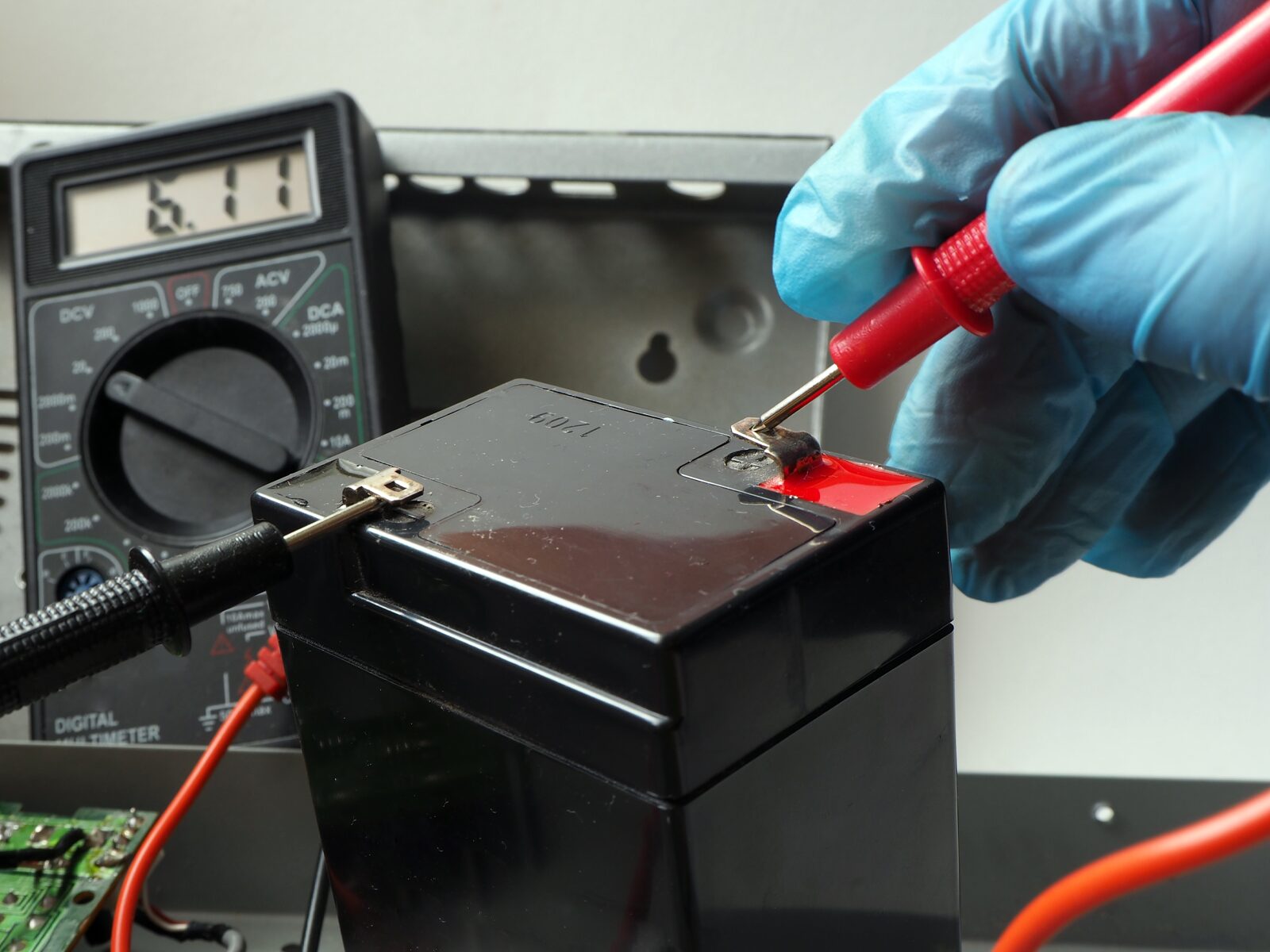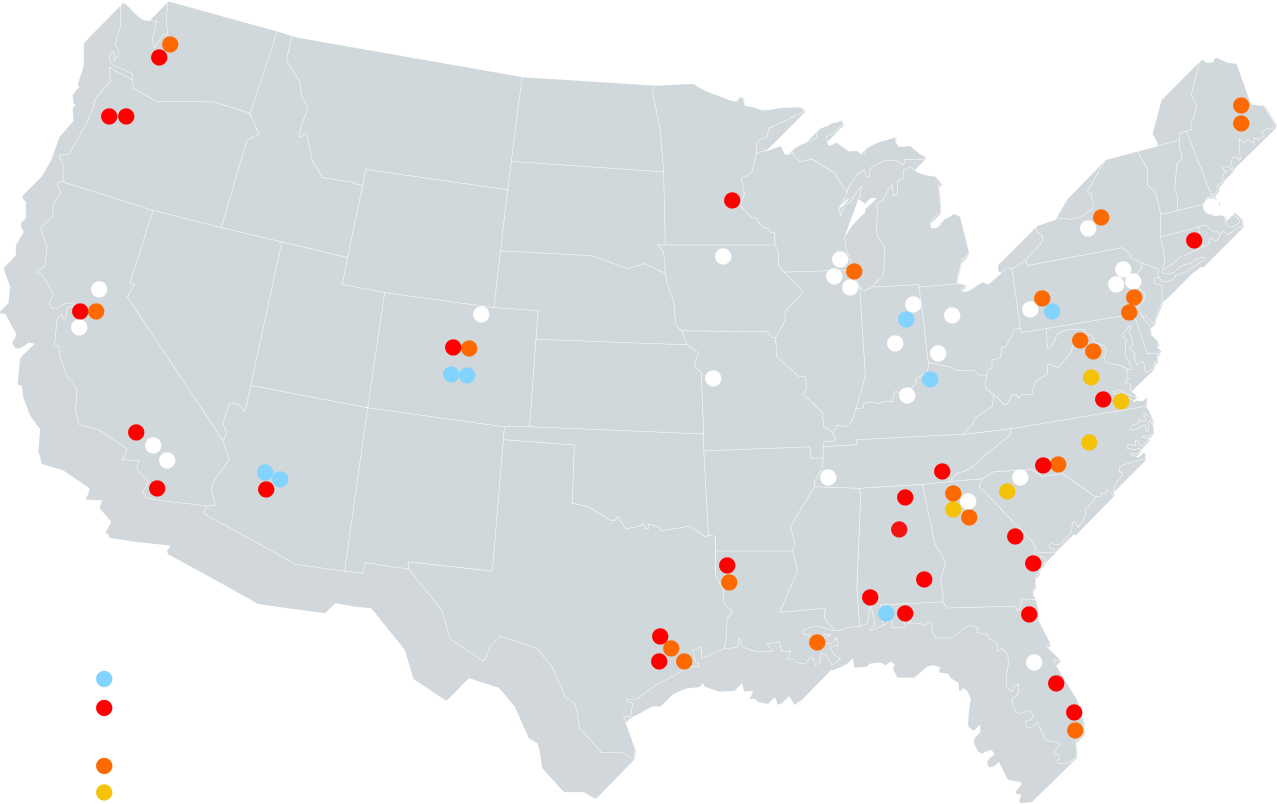ATS helps power the future of electric vehicles with battery abuse testing. As the market trends toward eco-consciousness and cost-efficient energy storage, major automotive companies have announced resolutions to increase electric vehicle production in the coming years.
However, electric vehicle batteries (EVBs) are not without their risks. While in use, EVBs operate under extreme conditions, such as high temperatures or vibrations. Misuse, abuse, or malfunction can have disastrous ramifications, including injury, vehicular fire or explosion, and liability. Manufacturers and suppliers rely on qualified third-party testing labs to anticipate and mitigate safety risks before a battery reaches the market.
Battery Abuse Tests
The ATS EV Battery Testing Lab applies controlled forces and conditions to batteries to simulate a variety of real-world abuses. Abuse testing is a vital step in the design and development processes. Battery abuse testing provides clients with a thorough understanding of the product, revealing:
- Reaction to non-normal circumstances
- Failure modes
- Abuse tolerances
Our experts work with a variety of battery types, such as lithium-ion (Li-ion), one of the most popular batteries on the market. While Li-ion batteries derive increased power from high energy density, the density increases the risk of thermal runaway and explosion.
Types of Battery Abuse Tests
ATS performs battery abuse testing in a safe and controlled laboratory environment. Throughout the service, we mitigate risks to clients and experts, such as chemical exposure or electric shock. As part of our culture of safety, we employ experts with the knowledge and experience to perform the tests.
Environmental Testing
Our equipment can subject an EV battery to very high and low temperatures from -60˚ C to +170˚ C. Working in a temperature-controlled lab with powerful technology, we uncover the battery’s performance limits in extreme climate conditions.
Mechanical Testing
Mechanical testing subjects EV batteries to various forces and loads in order to determine if a battery design is strong enough to withstand the mechanical conditions in the intended vehicular environment. Our mechanical battery testing services include:
- Compression Testing
- Impact Testing
- Tensile Testing
- Vibration Testing
Electrical Abuse Testing
ATS experts can also perform electrical abuse testing of EV batteries, taking measurements of voltage and currents.
Testing to Automotive Standards
Our expert engineers and technicians can craft custom or standard-based testing methods per client requirements. In addition to industry standards, we can also follow the unique specifications of individual automobile manufacturers. We can design tests to follow safety guidelines and testing methods from organizations such as:
- ASTM
- IEC
- IEE
- ISO
- MIL-STD
- NAVSEA
- SAE
- UL
Automotive Testing with ATS
ATS is a consulting engineering, calibration, inspection, and testing firm known for our dedication to high-quality customer service. With over half a century of service behind us, we have developed an ISO 9001:2015 Quality Management System to deliver thorough tests and comprehensive analysis to clients in a variety of industries.
Based in Marietta, GA, ATS is now at the center of an expanding Family of Companies (FoC) that reaches clients nationwide with locations in many states. We run ISO/IEC 17025:2017-accredited labs for calibrations and a variety of calibration and testing services, including:
Contact Us
Please call +1 (888) 287-5227 or complete the request form on this page to schedule battery abuse testing.



